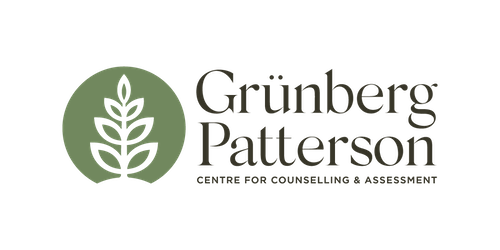Same Sex Marriage: a Family Issue
Same Sex Marriage: A Family Issue
This article is getting rather dated: it was first published in the Island Word in about 2000, when Canadians were hotly debating the issue. In 2004, legal Same-sex marriage became the rule of law in Canada, and the schoolroom and media debates settled down considerably after that. We are gratified to see that civilization has not crumbled; rather, we enjoy the fruits of this increased acceptance of diversity in Canada so much that it is easy to forget that life was so different so short a time ago.
We’ve kept this article up because it reminds us of a number of things. First, informal discrimination and prejudice continue to hurt families in ways that surprise and sadden us. Second, we have many friends, family members, and possibly even readers who live in countries such as the United States where the discrimination is legal and the debate, with all of its hurtful stereotypes and lies, continues. The negative stereotypes of GLBT people hurt not only gay people, but their children, too. When same-sex couples raise children (and they often do), prejudice in the community strikes at children’s faith in the love that binds their families together. And that, as we say here, “just ain’t right.”
We are proud and grateful to live in a country that has come so far since we wrote this article. Perhaps it can stand as a benchmark for the progress we have made, and continue to make, as a diverse society.
“I can’t be silent on this,” said Serena. “People are getting hurt. It just isn’t right.”
What fuelled our discussions lately was the news that the American lobby group, ‘Focus on the Family’, was sending postcards and other lobbying materials to groups in Canada opposing same sex marriage. This group, among others, promotes the view that same sex marriage threatens the traditional definition of marriage as “one man, one woman”. They go further, however, in claiming that homosexuality is inherently unhealthy, that same sex couples cannot provide a healthy family atmosphere for children, and that any portrayal of gay and lesbian people as normal or healthy is a dangerous lie that threatens “family values” and morality. While speaking in abstractions about “the family” and “marriage”, the debaters seem to be ignorant of, or disregarding the damage done to real families, marriages and partnerships. We see the lesbian and gay not only angry but also worried and hurting. We see our communities in danger to be torn apart when politicians and community leaders engage in false allegations and spurious attacks upon same-sex couples as parents and partners.
Researchers have been observing and studying the children of same-sex couples for many years, looking to determine whether growing up in lesbian or gay households really does scar children. We’ve done a lot of reading on the subject, and here is what we have found:
1. The children of gay and lesbian parents do not differ greatly as a group from the children of heterosexual parents. Some studies have found them to be a little bit less constricted by gender role expectations, and even a little more likely (10% vs. less than 5%) to identify in young adulthood as being gay or bisexual. Most grow to be heterosexual, secure, competent young adults with a little smaller tendency to stereotype their neighbors than the average person.
2. It matters that children have at least two adults who are devoted to them. Two parent families, regardless of gender, are generally better able to provide what children need than are single parents, but single parents can also do a great job when they are surrounded by a larger family or community who cares and can share the load.
3. Gay and lesbian parents worry quite a lot about how the stigma of living in “different” families will affect their children. Prejudice is a reality, but most of the time the children and families are able to overcome, through creativity and strong bonds, the disadvantages of being different.
The studies and statistics on average adjustment did not surprise us. Readers of the WORD may remember an article about two years ago about lesbian and gay families and their children in the Comox Valley. These families were not statistics, nicely summarized statements about average adjustment scores and the like. They were changing diapers and going to school meetings and staying up all night with colds and the flu, worrying about teenagers and their future. Step parenting, school bullying, and teens being embarrassed by parents were common complaints, sometimes made more complicated by the fact that those parents came in same-sex couples. But, for the most part, the children looked about as unique, fabulous and ornery as anyone else’s children. Families are families, after all. Nobody’s family is perfect, and these gay and lesbian parents were determined to give the children the best that they had.
Yet it is difficult to be at the eye of this storm; the disturbing rhetoric against same-sex marriage is hard on gay and lesbian families. It turns neighbors against one another and sows distrust between people of differing lifestyles and faiths. Among the children of gay and lesbian people, how can this rhetoric not sow doubt about their own safety, the legitimacy and equality of their families, and the fitness of their parents?
For example, Monika found quite disturbing a recent Globe and Mail article which quoted a woman as saying that in the country where she came from homosexual couples were tied into bamboo cages and put in the river to drown. Here are some concerns that came to mind:
• How would a nine-year-old child of gay or lesbian parents respond to such an article?
• How would a lesbian mother explain to her seven year old what “abomination” means?
• How would you reassure a child who reads that Stephen Harper has a plan to annul all same sex marriages, including the marriage between his own Dad and Daddy?
• How will Mr. Harper’s assertion that ‘ethnic minority groups do not want same sex marriage’ impact upon this child’s eagerness to learn about the many cultures and traditions that make up Canada?
• What happens between a child of same sex parents and her Catholic friends, who hear at church the pope’s devastating assertion that allowing same sex couples to raise children is child abuse?
• To this teen, what is the price of loyalty – to her peers, to her parents?
• When a teen is struggling with the age-appropriate discovery that parents are fallible, will he be able to separate his disillusionment from society’s prejudice against their same sex relationship?
• How will the family deal with his embarrassment over parents who are uncool not only because they are parents, but because they are queer, too?
We believe that it is urgent to end the debate, pass the legislation, and move on with the work of healing and building bridges.
Meanwhile, here are five ways that communities and individuals can support gay and lesbian families in the difficult job of raising children within a society where same sex couples are in the minority:
1. Make sure that school anti-bullying programs address ALL name-calling, including the use of “gay” to mean “stupid”, along with homophobic slurs and put-downs at every grade level.
2. Make pictures and images of many different families part of the school environment, along with images of different cultures and colors of skin.
3. Help children to understand the importance of being true to their own faith traditions, while respecting that others will have different traditions with different requirements. Teach them to respect and not to judge another’s spiritual path.
4. Tell our MPs, MLAs, community and spiritual leaders to stop attacking gay and lesbian people and their families. Tell them that you expect them to set better examples of responsible adult behavior than picking on minorities. Remind them that there are many other issues that need immediate attention in this world.
5. Create alliances and friendships that challenge the stereotypes. Be ready to learn something new, to appreciate one another, and to stand together in the face of attacks and adversity.
A diverse community, like a bio-diverse forest or farm, is made stronger by the different qualities of its members. We are proud of the diversity of the Comox Valley, and it gives us great pleasure to work with people of many faiths, ethnicities, family constellations, ages and backgrounds. We hold a vision of a world where everyone belongs, everyone has dignity, and, as long as it does no harm, everyone has an equal right to find their own way to create family, love and spiritual wholeness.
You can reach Monika Grünberg, Registered Clinical Counsellor and Serena Patterson, Registered Psychologist at their practice in Comox at 339-3269, or in Campbell River at (877) 339-3269.


